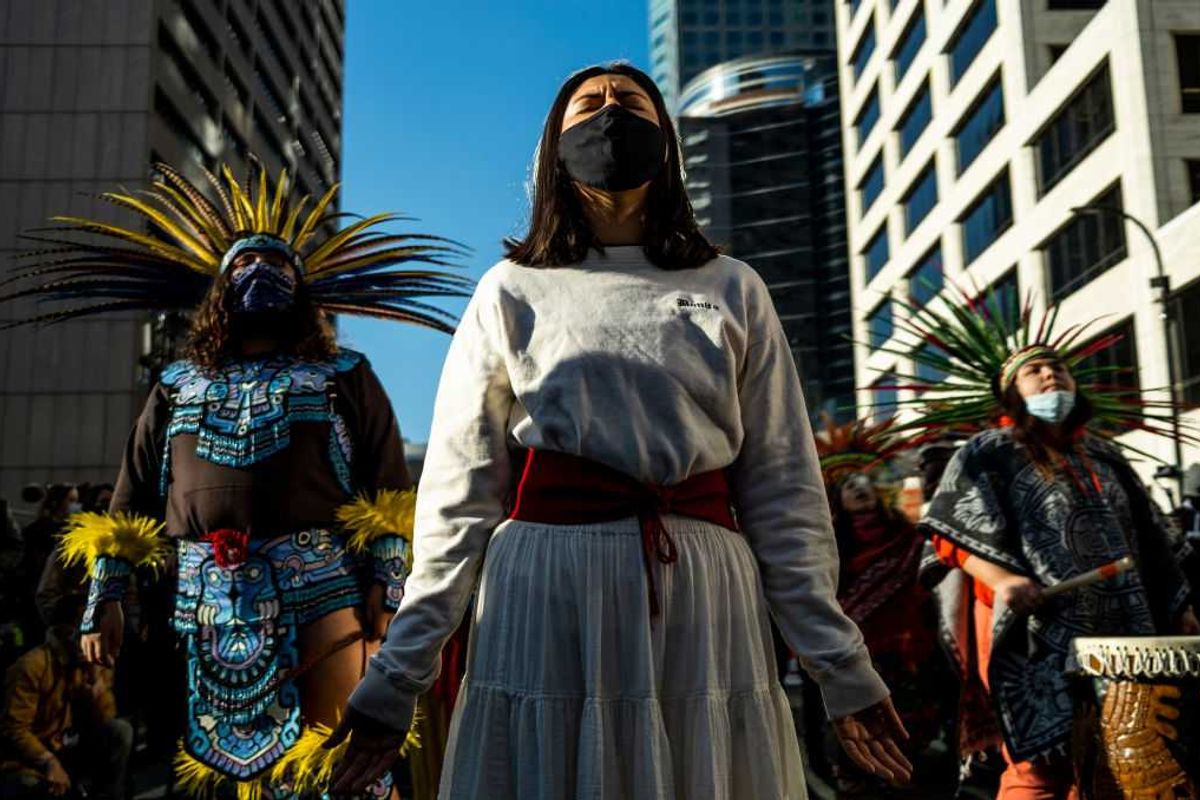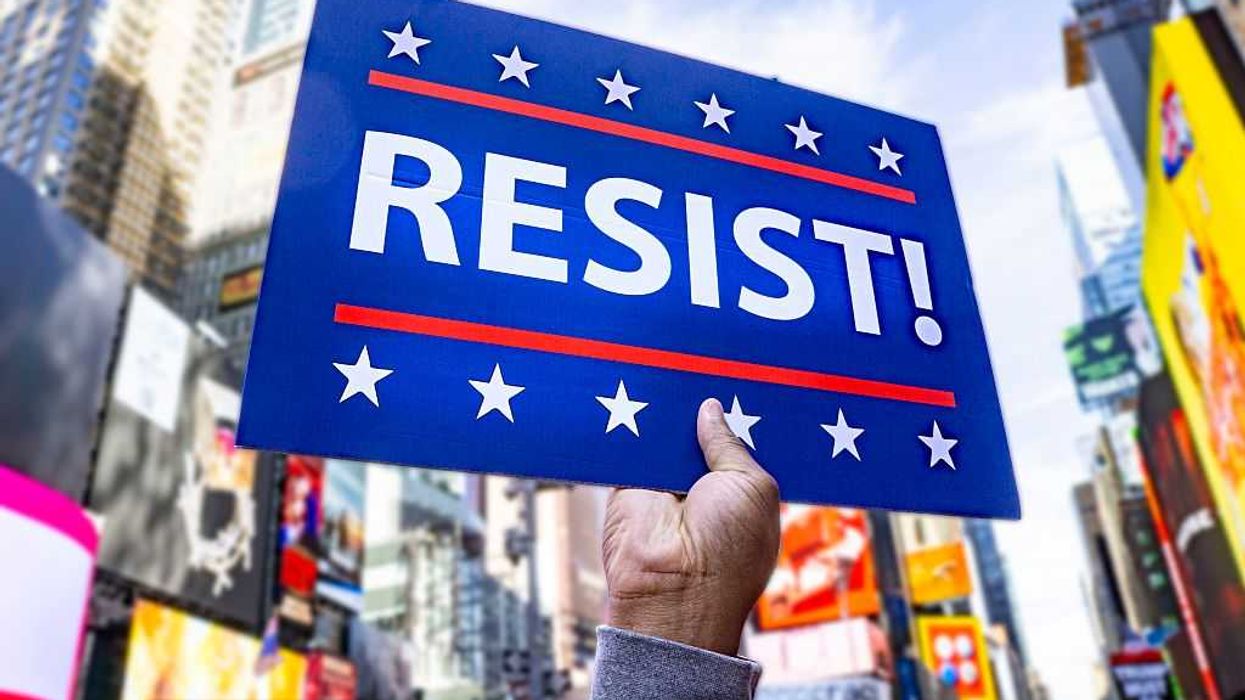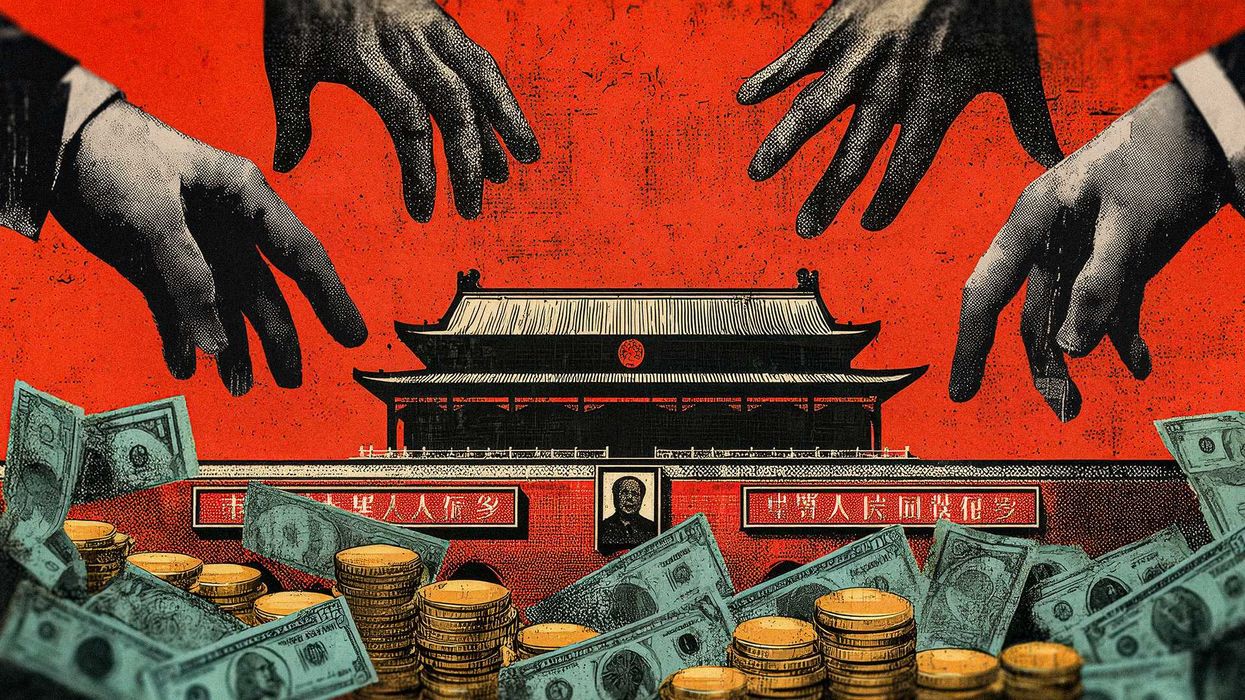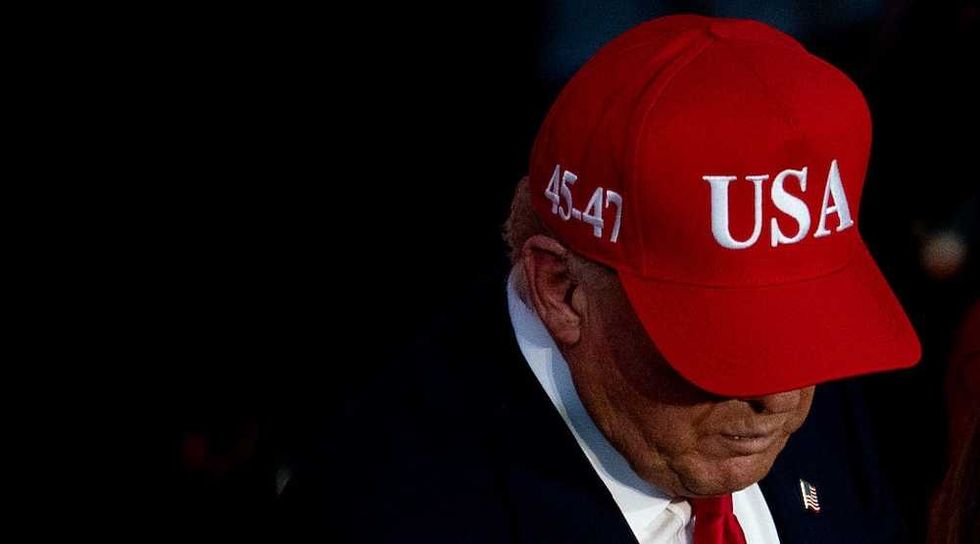
Category: Colleges and universities
Blaze Media • Colleges and universities • Diversity • Diversity equity inclusion • Land acknowledgment • Opinion & analysis
The campus left’s diversity scam exposed in 30 seconds flat

Anyone who attends a university event, browses a college website, or strolls through a city park has likely heard a Native American land acknowledgment. These statements now function as the incense of the modern academy — burned at the start of a ceremony, meant to signal moral clarity, and producing the intellectual equivalent of secondhand smoke.
Arizona State University, where I teach philosophy, posts these statements on the webpages of the Sandra Day O’Connor College of Law and the Hayden Library. The library even affirms that “we are on Akimel O’odham land, and that always needs to be at the forefront of our thinking.”
Pluralism, the real kind, permits disagreement and debate. What we have now resembles stage-managed pluralism: You read the script you are handed, or you stay quiet.
The implication is clear: U.S. sovereignty becomes an open question. That is the point. These acknowledgments aim to “problematize” the legitimacy of the United States, a central goal of the academic decolonization movement.
For six years, ASU’s New College has required faculty to listen to one at the start of every meeting.
A harmless ritual? A gesture of respect? A symbolic nod?
I wondered the same — until I conducted a small experiment.
A revealing reaction
At last week’s New College faculty meeting — a meeting of state employees conducting public business — I asked a straightforward question.
“Given our commitment to diversity, may I also read a land acknowledgment of my own before each meeting?”
My acknowledgment was not provocative. It thanked the generations of settlers, farmers, builders, capitalists, and families who transformed the Salt River Valley into a place capable of supporting a world-class university. It affirmed that we serve all students and help them prosper.
I made a motion.
Discussion required only a second. Not approval. Not endorsement. Only a willingness to debate the proposal.
Not one person seconded it.
I did not ask colleagues to agree with my acknowledgment. I asked only to read it. In fact, I would gladly see everyone read their own. Let every faculty member present a statement, a grievance, or a cause they feel compelled to highlight. Why limit the practice to one perspective?
Yet the official record now shows that not one faculty member at ASU’s New College would second a motion to expand diversity.
Appearance vs. reality
The episode highlights a distinction philosophy once taught clearly — the distinction between appearance and reality. Faculty preach diversity in language that collapses into ideological uniformity. Many cannot describe a competing view without reducing it to a script: oppressed versus oppressor. Anyone who falls outside their categories becomes a threat.
My request challenged the boundaries of that framework. To the decolonization mindset, my acknowledgment represents the wrong category — heritage tied to “settler guilt” or “oppressor identity.” The ideology cannot imagine anything beyond that narrow frame.
Pluralism, the real kind, permits disagreement and debate. What we have now resembles stage-managed pluralism: You read the script you are handed, or you stay quiet.
The academic left rose to influence by praising inclusivity and toleration. Once in power, it exempts itself from those principles because tolerance, in its view, cannot extend to anyone labeled “bigot” and inclusion cannot extend to anyone lumped into the category “fascist.” Only the Marxist dialectic survives the screening.
The ideology behind the script
Some readers may think these acknowledgments amount to harmless gestures. They are not. They originate in decolonization theory, rooted in works like Eve Tuck and K. Wayne Yang’s “Decolonization Is Not a Metaphor,” which defines decolonization as the overturning of settler society. Practitioners describe their own project as Marxist; that is the label they choose.
Land acknowledgments do not describe history; they advance ideology. They treat land as permanently tied to racial or ethnic groups, a “blood and soil” logic the same theorists claim to reject. They question private property, Western legal concepts, and American national legitimacy.
Seen through that lens, the reaction to my request becomes predictable. The ideological system divides the world into oppressed and oppressor. My acknowledgment, in their view, inserts the “oppressor” and threatens the narrative.
Hypocrisy becomes impossible to miss. Faculty who go along to avoid conflict now face an uncomfortable truth: The ideology they tolerate openly rejects the pluralism a university claims to defend.
RELATED: Antifa burns, the media spin, and truth takes the hits
 Photo by: Spencer Jones/GHI/UCG/Universal Images Group via Getty Images
Photo by: Spencer Jones/GHI/UCG/Universal Images Group via Getty Images
Academic reasoning is out
One hopes university professors — presumably trained to evaluate arguments — could step outside ideological commitments long enough to examine their assumptions. The job once required that. But critical theory, as taught in many departments, closes off that possibility. It demands that every fact, dispute, or policy fit into a predetermined narrative of oppression.
Herbert Marcuse, in “One-Dimensional Man,” argued that intellectuals must not describe reality as it is but reshape society toward liberation from capitalism and Christian tradition. That approach leaves little room for honest debate.
The real remedy
Critical theory teaches that man is a victim of systems and structures. Scripture teaches that man is a sinner in need of redemption. Marxist theorists believe society must be remade. Christians believe the heart must be reborn.
Jesus told Nicodemus, “You must be born again” — a direct claim about the human condition. Our deepest problem is not a defective system but a corrupted heart. No bureaucratic revolution can fix that. Ideologies that promise liberation from greed or power often create something worse when handed authority.
The human dilemma runs deeper than political structures, and the solution rises higher than any academic program. Here is the acknowledgment I would like to hear at our university: “For God so loved the world, that he gave his only Son, that whoever believes in him should not perish but have eternal life.”
Blaze Media • China • Chinese students • Colleges and universities • Exchange students • Opinion & analysis
America’s addiction to Chinese money runs deeper than we care to admit

In a recent interview, President Trump defended his earlier claim that bringing 600,000 Chinese college students into the United States would be good for the country. When the interviewer questioned how that aligned with an America First agenda, Trump replied that without those students, “Half the colleges in America would go out of business.”
To most Trump supporters, that sounds like a win-win — fewer foreign students and fewer left-wing universities to subsidize. But Trump seemed to view the issue as a business transaction: Closing locations is bad, losing revenue is bad, and the substance of those “economic units” doesn’t really matter.
Why should we play Russian roulette with our national security to pad universities’ bottom lines?
His comments revealed a deeper confusion about what America First really means.
The China contradiction
America’s relationship with China has long been incoherent. Every Republican politician insists China is our chief geopolitical rival — a totalitarian power bent on unseating the United States as global hegemon. Yet few make any effort to restrict Chinese immigration, investment, or influence. At some point, it becomes difficult to take any of the rhetoric seriously.
The problem is obvious: China has too many people and too much money. The country’s strength lies in what America abandoned: manufacturing. While American corporations chased financial gimmicks and “service economies,” China focused on making tangible goods at scale. That discipline built a vast middle class and positioned Beijing at the center of global production. Now nearly every Western industry — film, retail, education — depends on access to China’s markets.
The result: American institutions bend over backward to please a government they claim to fear. Chinese nationals can buy land, start companies, and enroll by the hundreds of thousands in U.S. universities. It would be funny if it weren’t so corrupt.
The university addiction
Trump knows mass immigration hurts Americans, but he struggles to say no when big money is involved. Foreign students pour billions into universities, and administrators have built their entire business models around them. But counting up dollars isn’t the same as serving the national interest.
Universities are publicly subsidized and supposedly dedicated to educating Americans first and foremost. Instead, they’ve turned into pipelines credentialing foreign elites — and sometimes, spies. Every seat filled by a Chinese student is one less for an American, and every dollar that props up a hostile regime’s protégés deepens our dependence on that regime.
The Department of Justice has charged three Chinese nationals at the University of Michigan for smuggling research materials and stealing technology. Eric Weinstein has even suggested that theoretical physics is being throttled for fear of espionage. Yet the universities — and now, apparently, Trump — seem unfazed.
Why save the enemy’s seminary?
Propping up higher education with Chinese cash isn’t just shortsighted — it’s insane. Colleges and universities have become leftist seminaries, charging astronomical tuition for courses that teach Americans to despise their parents and their nation. They already receive lavish government subsidies and still demand more.
Trump’s claim that “half the colleges” would collapse without Chinese money is dubious, but if it were true, those institutions deserve to fail. Let them. Destroying the patronage networks that produce radical activists was once a Trumpian goal. Reviving them with foreign money would be an act of political masochism. Why should we play Russian roulette with our national security to pad their bottom line?
RELATED: The ‘China class’ sold out America. Now Trump is calling out the sellouts.
 Stefani Reynolds/Bloomberg via Getty Images
Stefani Reynolds/Bloomberg via Getty Images
The broader threat
Chinese money poisons more than academia. Nationals and shell companies routinely buy American land — including, alarmingly, property near military bases. One recent purchase of an RV park in Missouri by a Chinese couple just happened to place them next to Whiteman Air Force Base, home of the B-2 stealth bomber fleet. Similar shadowy transactions dot the map.
The pandemic exposed the madness of this dependence. The same regime that unleashed a virus on the world also controlled the supply chains for the medicine and protective gear we needed to fight it. Yet America’s political class still refuses to sever the tie. They are too addicted to Chinese money — and too invested in pretending that dependency equals diplomacy.
If the GOP is serious about confronting China, it must start by cutting every cord of reliance. Banning Chinese students from U.S. universities would be a simple, symbolic first step — and it would strike directly at the heart of the progressive academic machine.
search
calander
| M | T | W | T | F | S | S |
|---|---|---|---|---|---|---|
| 1 | ||||||
| 2 | 3 | 4 | 5 | 6 | 7 | 8 |
| 9 | 10 | 11 | 12 | 13 | 14 | 15 |
| 16 | 17 | 18 | 19 | 20 | 21 | 22 |
| 23 | 24 | 25 | 26 | 27 | 28 | 29 |
| 30 | 31 | |||||
categories
Archives
navigation
Recent posts
- Gavin Newsom Laughs Off Potential Face-Off With Kamala In 2028: ‘That’s Fate’ If It Happens February 23, 2026
- Trump Says Netflix Should Fire ‘Racist, Trump Deranged’ Susan Rice February 23, 2026
- Americans Asked To ‘Shelter In Place’ As Cartel-Related Violence Spills Into Mexican Tourist Hubs February 23, 2026
- Chaos Erupts In Mexico After Cartel Boss ‘El Mencho’ Killed By Special Forces February 23, 2026
- First Snow Arrives With Blizzard Set To Drop Feet Of Snow On Northeast February 23, 2026
- Chronological Snobs and the Founding Fathers February 23, 2026
- Remembering Bill Mazeroski and Baseball’s Biggest Home Run February 23, 2026






